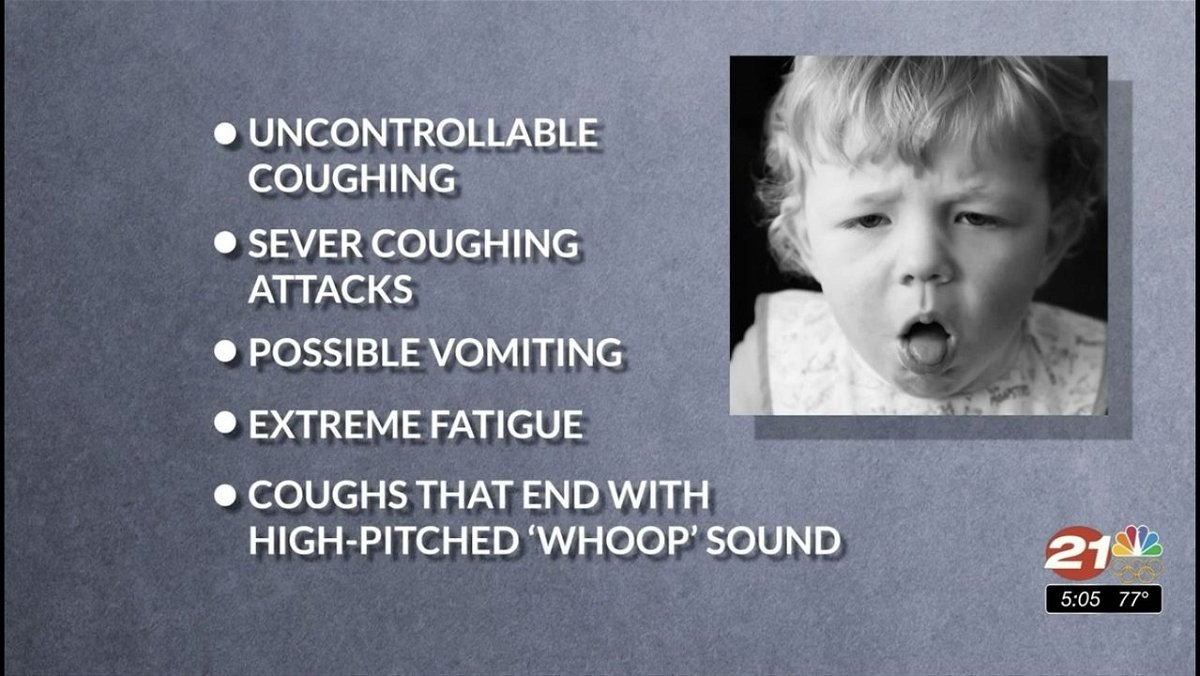Oregon health officials issue warning over sharp rise in pertussis cases; Deschutes, Jefferson counties have had 23

PORTLAND, Ore. (KTVZ) —Oregon health officials expressed concern Thursday about a sharp increase in cases of pertussis – known as whooping cough – across nine counties, including Deschutes and Jefferson, and are encouraging people to get vaccinated against the disease.
As of Wednesday, May 29, 178 pertussis cases have been reported to Oregon Health Authority’s Public Health Division. That’s a 770% increase from the 20 cases reported by that date in 2023.
However, OHA noted that the 2024 numbers are roughly in line with those seen during similar time frames in the immediate pre-pandemic years, including 2019, when there were 93 cases, and 2018, which saw 248 cases.
Pertussis is cyclical, and before the COVID-19 pandemic – when restrictions that included masking requirements and school closures were in effect – pertussis peaked every three to five years. In 2012, 910 cases were reported, the highest annual count since 1953.
“Our concern is with how quickly we jumped to such a high number of pertussis cases, which tell us that the disease is doing what it does best: spreading fast and taking a greater toll on undervaccinated persons,” said Paul Cieslak, M.D., medical director for communicable diseases and immunizations at the Public Health Division.
Among the nine counties with reported pertussis to date in 2024, Lane County leads with 64 cases, followed by Multnomah (41), Clackamas (33), Deschutes (15), Washington (13), and Jefferson (8). Three other counties have also seen cases. School-aged children and adolescents account for 92 (52%) of cases. Among them, only 51 (55%) are up to date with recommended pertussis vaccinations.
Infants are at highest risk of pertussis-related complications and death, and they have the highest reported incidence rate. Between 2003 and 2023, infants accounted for 12% of cases and 76% of pertussis hospitalizations. And Oregon pertussis deaths have been limited to infants – five have occurred since 2003.
Babies too young to have been fully vaccinated are most likely to be hospitalized with pertussis. Cieslak said that pregnant people can protect their young babies by getting Tdap vaccine – which protects a person against tetanus, diphtheria and pertussis – at 27–36 weeks’ gestation. The mothers will make antibodies and pass them to their babies across the placenta, protecting them from birth. Among 16 infant cases reported in Oregon to date in 2024, only one mother had a documented dose of Tdap during the pregnancy.
When an infant or pregnant person is in the household of someone with pertussis, all household members should receive a course of antibiotics effective against Bordetella pertussis – typically, a five-day course of azithromycin.
Vaccination against pertussis is routinely recommended for infants, children, adolescents and adults. Children should receive the DTaP vaccine against diphtheria, tetanus and pertussis at 2, 4, 6 and 15 to 18 months, and again at age 4 to kindergarten age.
All persons ages 10 and older should receive a single dose of Tdap, OHA said.
More information: https://www.oregon.gov/oha/ph/diseasesconditions/diseasesaz/pages/pertussis.aspx